With a management mindset, developing a team of Vietnamese entrepreneurs is an inevitable need in the process of realizing the goal of a "developed nation" by 2045.
Business and Entrepreneurs
Each enterprise is an economic institution, with the primary function of production and business to meet the diverse needs of people. The more modern society becomes, the more diverse the types of enterprises become, the wider the scope of activities, and the more diverse the functions.
People who own, manage, and operate businesses are considered entrepreneurs . The basic principle in the operation of businesses and entrepreneurs is to create surplus value, or “profit”.
In any society and at any stage of development, the social structure divided by occupational criteria reflects the level of development of each socio-economic system. Vietnam is an agricultural economy, the labor force is mainly "farmers". Underdeveloped business and trade activities make the number of people considered "entrepreneurs" small.
That is why, before the French colonialists invaded our country, businessmen were not respected and were ranked last among the "four classes": "Intellectuals, farmers, workers, and merchants".
During nearly a century of French colonial rule, Vietnamese businessmen also appeared but were always oppressed by businessmen from the mother country as well as the colonial government.
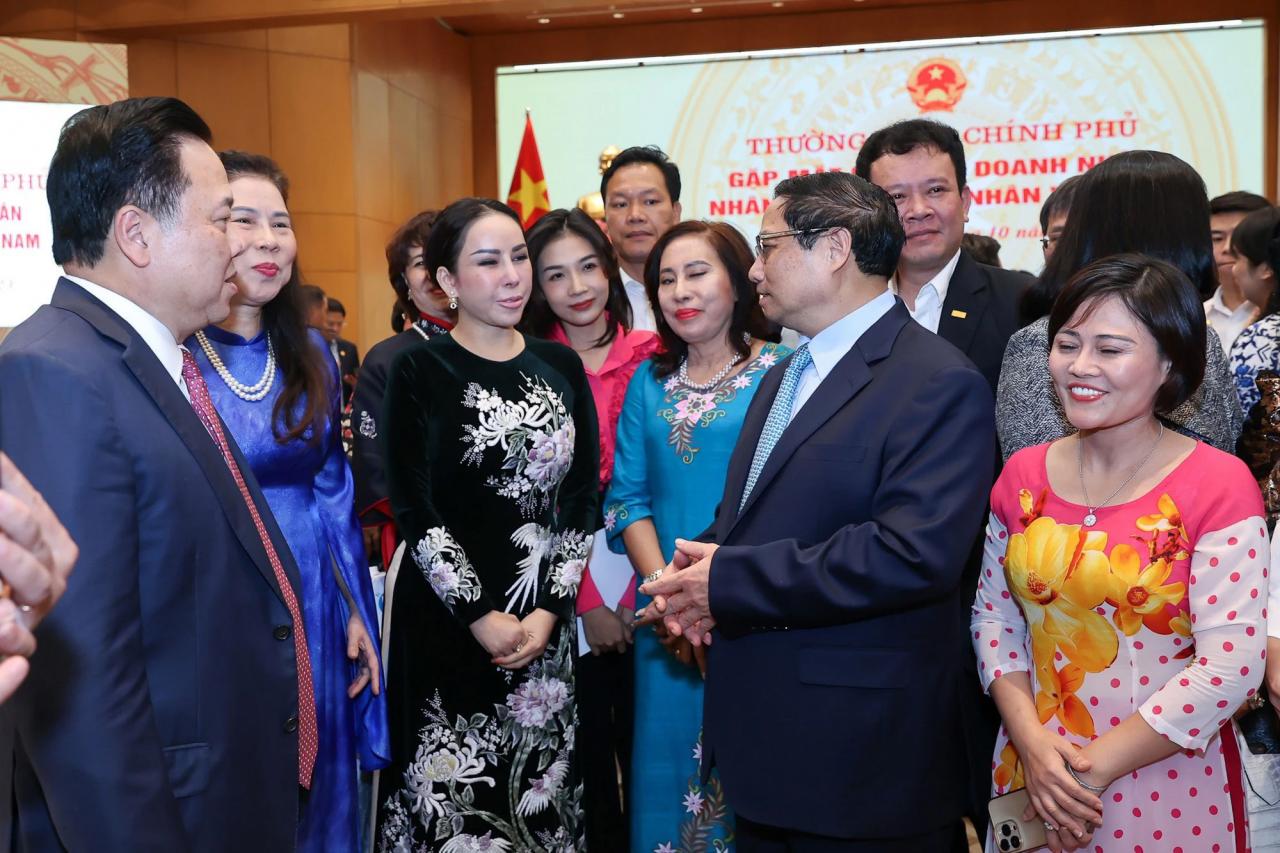
Prime Minister Pham Minh Chinh talks with businessmen at a meeting on the afternoon of October 11, 2023. Photo: VGP
Three decades of war (1945-1975) and the policy of building a socialist economy according to the classical model after the country's reunification (1975-1985) made it impossible for market economic factors to develop, along with the absence of "entrepreneurs".
Entering the third decade of the 21st century, the development of the Vietnamese business community has not yet met expectations. According to statistics, with nearly 1 million enterprises (mainly small and medium-sized), nearly 30,000 cooperatives and over 5 million individual business households, it is expected that by 2025 there will be about 1.5 million enterprises.
Thus, the number of real entrepreneurs in our country today accounts for a very low proportion of the population structure, about 2 million people.
Since 2011, Resolution No. 09-NQ/TW on building and promoting the role of Vietnamese entrepreneurs in the period of accelerating industrialization, modernization and international integration has stated: our country's entrepreneurs "are newly formed and developing, and have not yet accumulated much capital, knowledge, technology, experience and business traditions".
The above reality stems from many causes, including the problem of awareness, as pointed out in Resolution No. 09-NQ/TW: "In some places, the attention of party committees, authorities, and organizations towards entrepreneurs is still limited, and there is no unified understanding of the role of entrepreneurs in the socio-economic development of the country".
The position of the businessman
The status of an individual or group in society not only reflects the individual/group's position in the social stratification system, but also shows the level of social recognition of their role, expressed through the values they contribute to the community.
In prosperous countries, entrepreneurs are always respected, have high status, and entrepreneurs become a social value that many people uphold.
According to the law of development in human history, to improve the social status of entrepreneurs, it is not only necessary to increase their number, but more importantly, it is necessary to create conditions for them to increasingly contribute positively to the development of the country.
A key condition for the growth of the business community is to establish a modern market economy, with characteristics such as: expanding economic freedom, protected property rights, fair competition, and open and transparent state management.
Issued on October 10, 2023, Resolution No. 41 -NQ/TW continues to affirm the viewpoint of valuing the position and role of our country's business force in the new era. Entrepreneurs are identified as "one of the core forces" in the process of realizing the leadership vision: making Vietnam a developed, high-income country by 2045.
To become “national entrepreneurs”, Vietnamese entrepreneurs are also required to “have patriotism, national self-reliance, aspiration to contribute, respect the law”, and respect ethical, cultural and civilized values in production and business.
In addition to the orientations for solutions to continue perfecting the socialist-oriented market economy, Resolution No. 41-NQ/TW affirms the viewpoints supporting freedom of production and business, limiting the level of State intervention in economic activities such as: "not criminalizing economic relations... ensuring a stable, synchronous, unified, transparent, and equal legal framework".
Identified as a “core” entity in the country’s development process, Resolution No. 41-NQ/TW affirms the viewpoint of respecting and protecting the rights, voices, and interests of the business community. The Vietnam Federation of Commerce and Industry is identified as a “political-social-professional organization representing the legitimate and legal rights and interests of businesspeople and enterprises”.
Resolution No. 41-NQ/TW also sets out directions to continue improving the position of business people in political processes and policy implementation, such as: "creating conditions for business people to have representatives participating in elected bodies, socio-political organizations, and other relevant legal organizations". "The State shall study and create conditions for business representative organizations to participate in providing a number of appropriate public services".
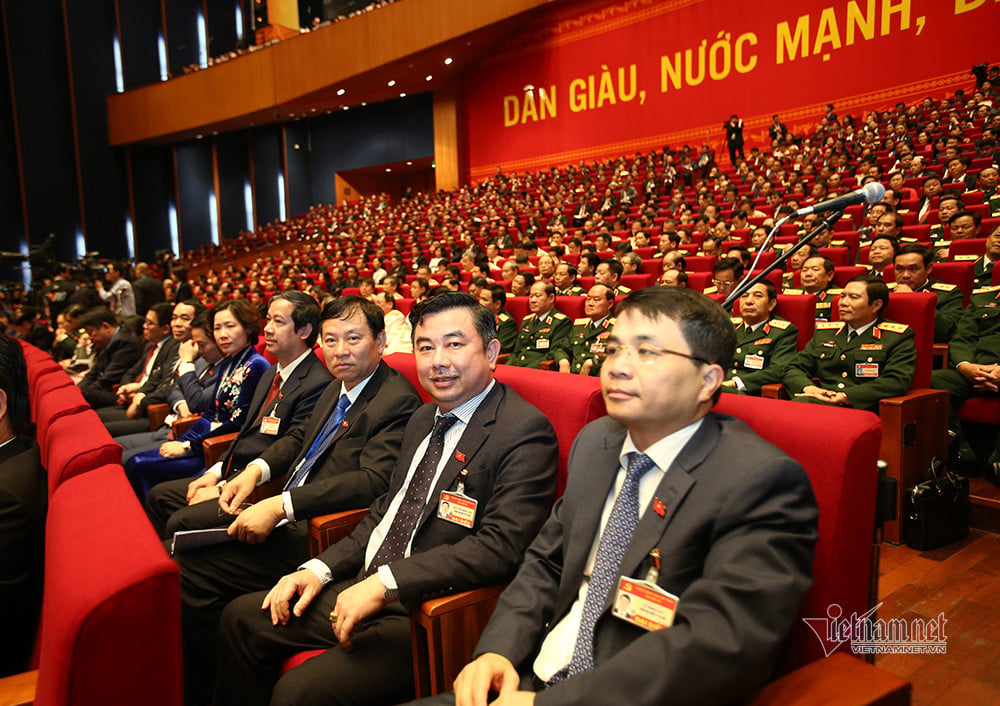
The concept of "governance" in the Party Congress documents shows new thinking.
Entrepreneurship and national governance
The political report of the 12th Central Committee presented to the 13th National Congress of the Communist Party of Vietnam identified one of the key tasks and strategic breakthroughs of the term as: "Innovating national governance in a modern and effective direction".
The use of the concept of "governance" in Party congress documents has shown new thinking, gradually shifting from "management" thinking in traditional societies to "governance" thinking in modern societies.
Governance, in general, is a way of “steering and guiding” a social community, a way of operating society based on the reconciliation and resolution of competing interests among different social groups. Different from the management mindset that only emphasizes the central role of the government/State, modern governance structures include entities and institutions that exist outside the State sector.
More specifically, governance structures not only include formal institutions such as government, laws, administrative principles & regulations, but also emphasize the status and role of private actors, social organizations, non-profit organizations, regional and international institutions, as well as the positivity and initiative of each citizen. The relationship between governance subjects in the contemporary world is formed horizontally, with a more partnership, cooperation, and equality nature.
In such a multi-stakeholder governance framework, public interest is no longer the sole basis for policy decisions. Instead, the interest expectations of governance actors play an important role in the process of managing and operating the socio-economy. Policies tend to be more influenced by the interests of the actors rather than just the public interest.
Therefore, the biggest challenge in building modern governance is to establish strong institutional conditions so that multi-stakeholder commitments can be seriously implemented.
National governance refers to economic and political systems associated with sovereign territorial spaces, where governance power is distributed to actors both inside and outside the state.
Thus, the structure of national governance includes the mechanisms, processes, and institutions through which citizens and social groups articulate diverse interests, exercise their legal rights, fulfill their duties, and reconcile differences of both views and interests.
National governance is the joint exercise of political, economic, and administrative power by entities to solve collective problems at all levels. With a governance mindset, developing a team of Vietnamese entrepreneurs is an inevitable need in the process of realizing the goal of a “developed nation” by 2045.
Dr. Nguyen Van Dang
Vietnamnet.vn









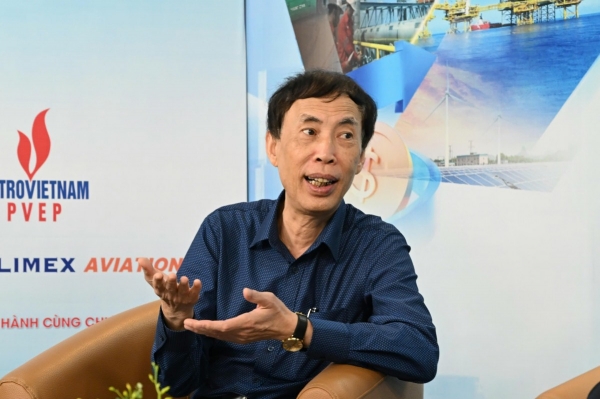

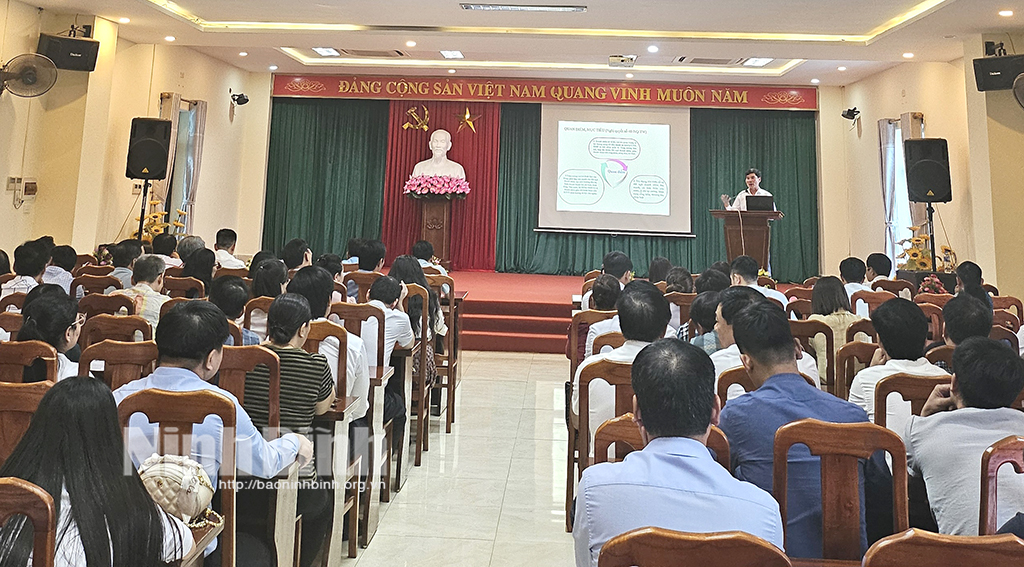



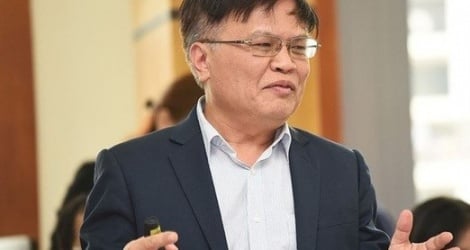





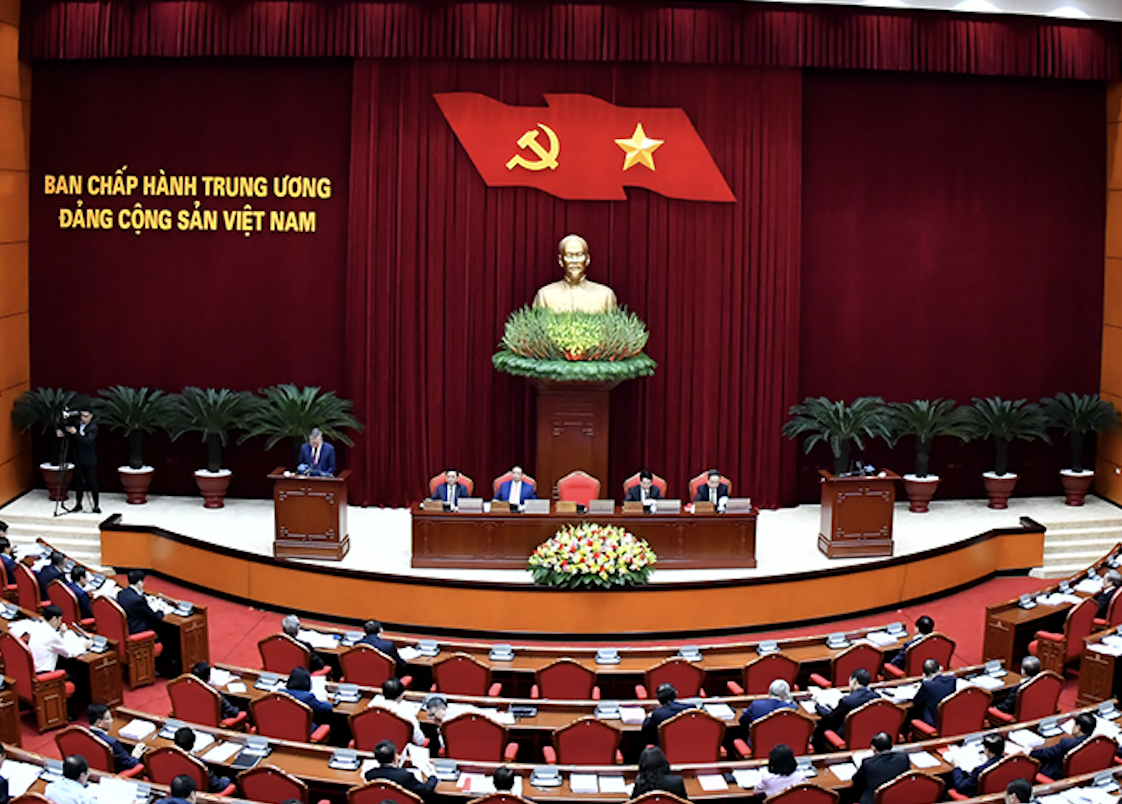
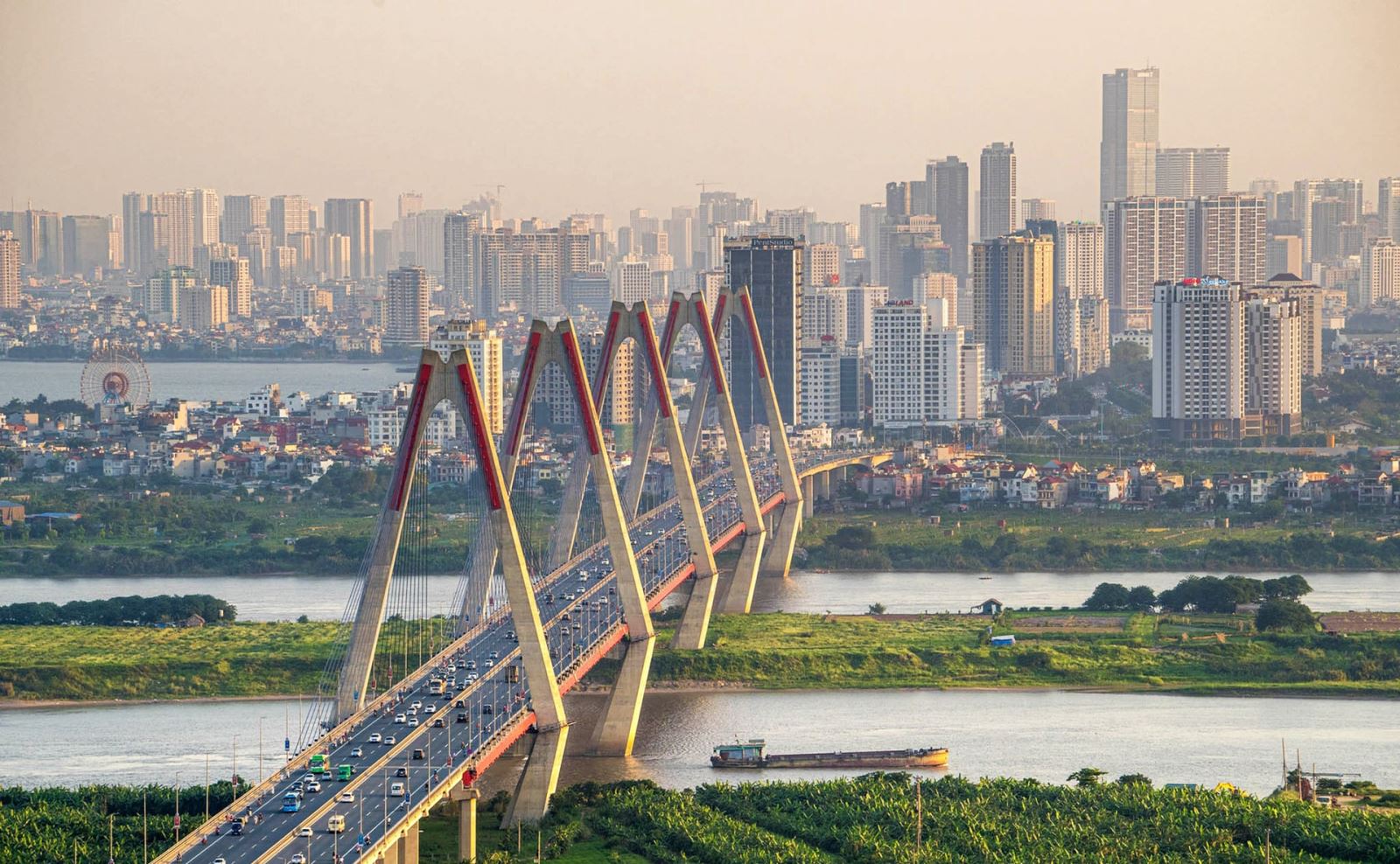
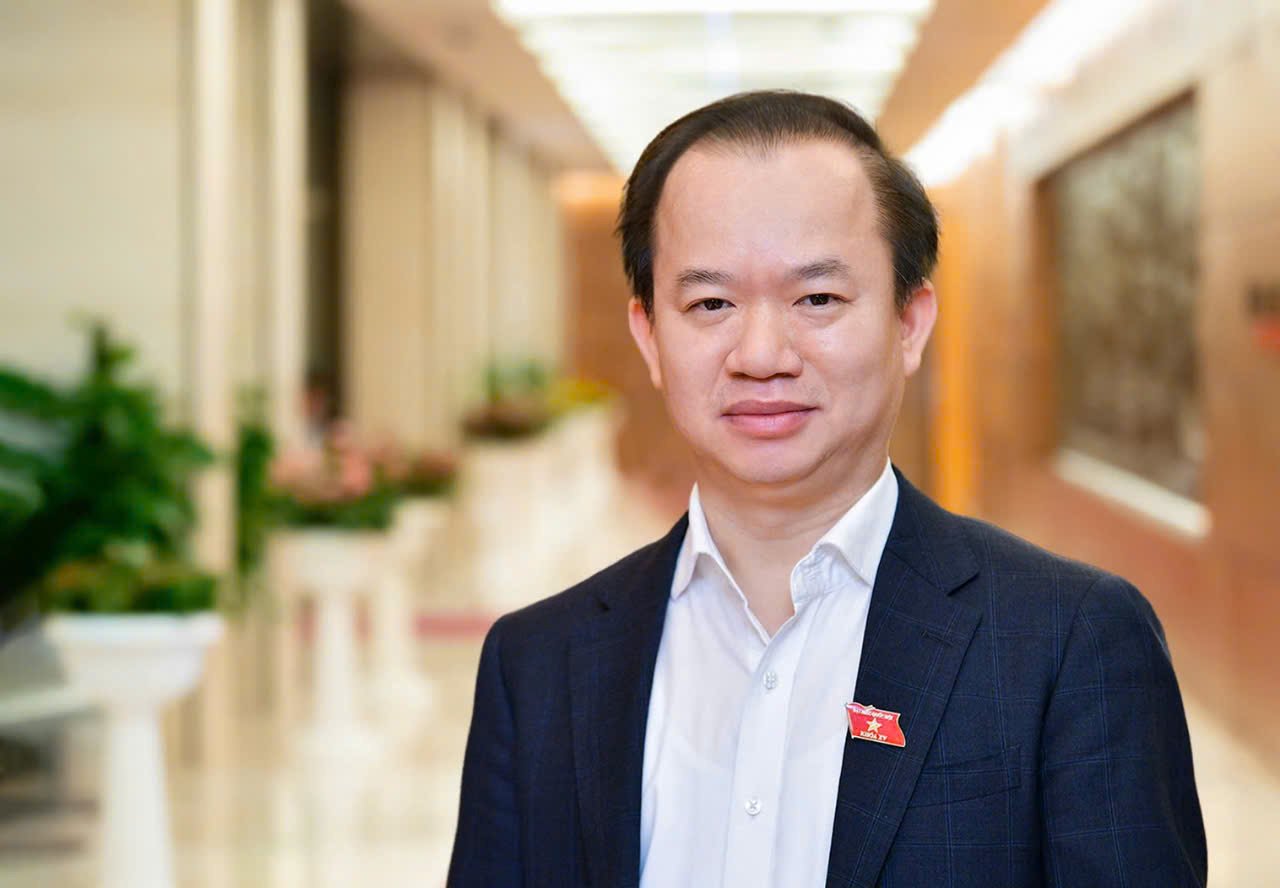














Comment (0)